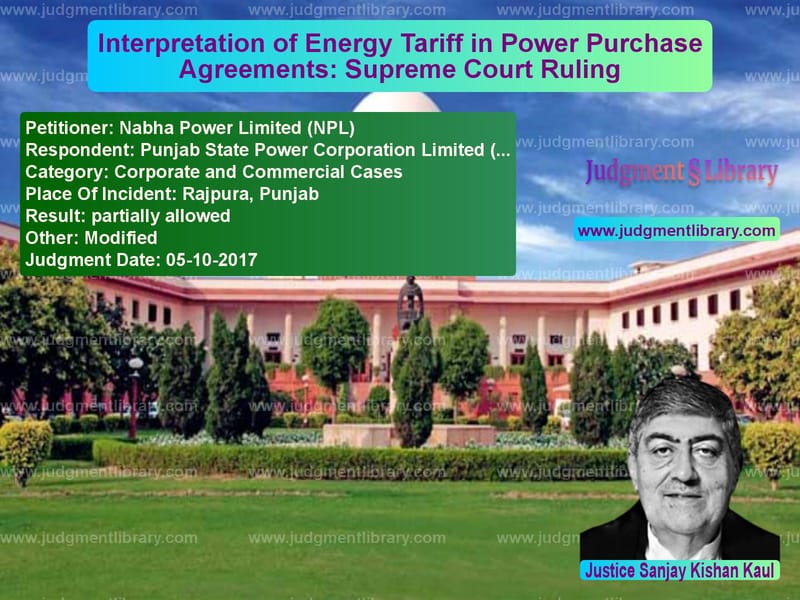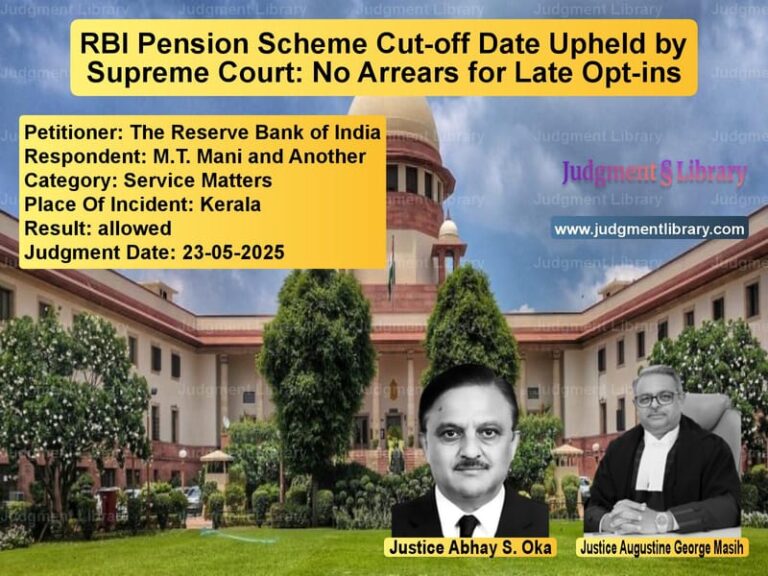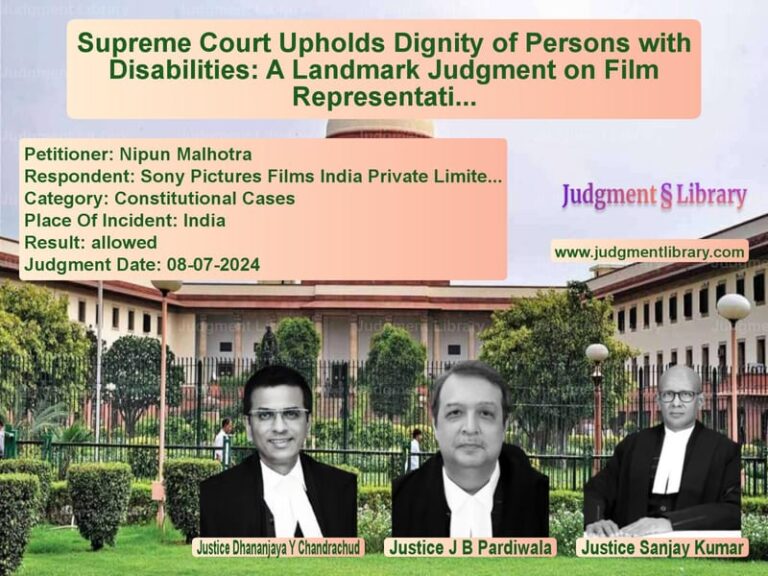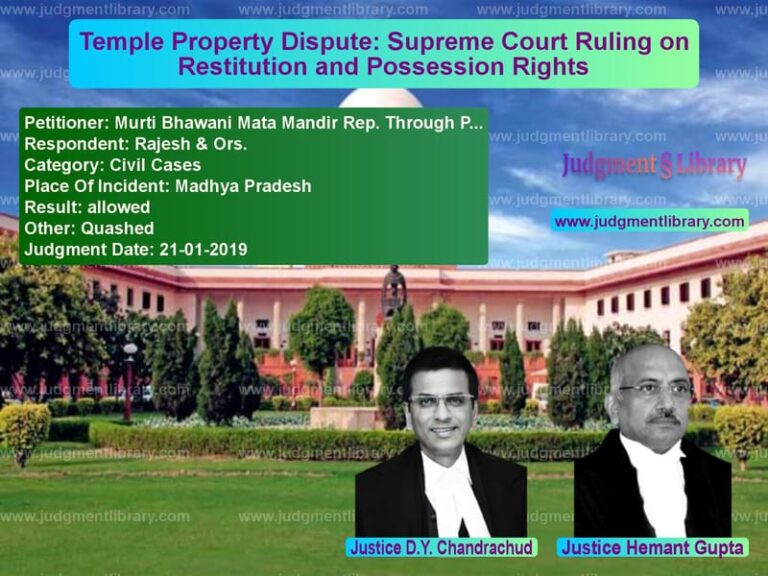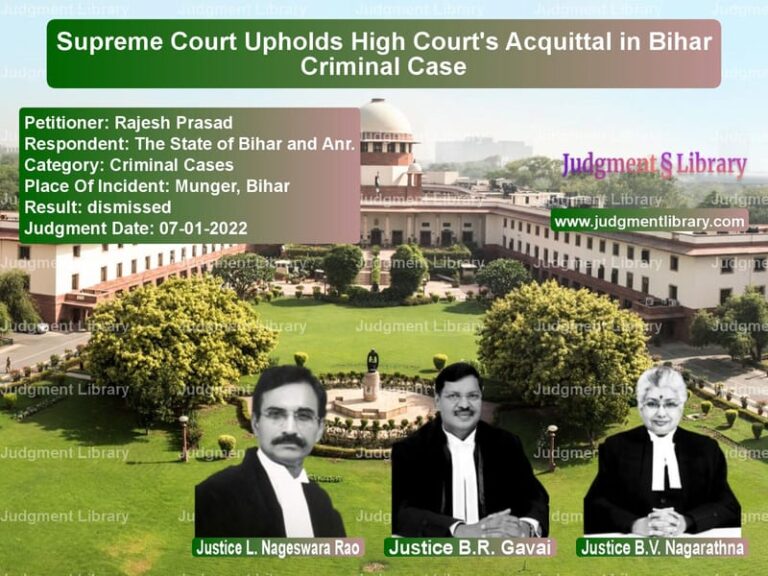Interpretation of Energy Tariff in Power Purchase Agreements: Supreme Court Ruling
The Supreme Court of India, in the case of Nabha Power Limited (NPL) vs. Punjab State Power Corporation Limited (PSPCL), dealt with the interpretation of contractual terms related to power procurement agreements. This case revolves around the obligations and cost components associated with power generation, specifically the pricing of coal and energy charges under the Power Purchase Agreement (PPA).
Background of the Case
The case arose when the Punjab State Electricity Board (PSEB) initiated a competitive bidding process for a power project in 2009. Nabha Power Limited (NPL), a special purpose vehicle, was set up for the implementation of this project. The bidding process followed the guidelines under Section 63 of the Electricity Act, 2003, which mandated that the tariff be determined through a transparent competitive bidding process.
The dispute emerged from the obligations under the PPA, particularly concerning costs associated with coal procurement, washing, transportation, and unloading at the project site. PSPCL, the successor entity of PSEB, made deductions from the monthly energy charges payable to NPL. NPL challenged these deductions before the Punjab State Electricity Regulatory Commission (PSERC), which dismissed the petition. The matter subsequently reached the Supreme Court.
Key Issues in Dispute
Several core issues were presented before the Supreme Court:
- Whether the cost of washing coal should be reimbursed under the energy charge formula.
- Whether the transportation costs, including first-mile (mine to washery) and last-mile (railway station to project site), should be considered in the energy charges.
- Whether the calorific value of coal should be measured at the mine-site or at the project-site.
Arguments by the Petitioner (NPL)
NPL, represented by senior advocate Mukul Rohatgi, argued that:
- The contract was structured under a Case-2 bidding model, which meant that the location and fuel supply were pre-determined by the procurer (PSPCL).
- The quality of coal supplied was below the required specifications, necessitating washing, which was a pre-condition for use in power generation.
- The transportation costs, including road transportation where railways were unavailable, should be borne by PSPCL as per the energy charges formula.
- The calorific value of coal should be measured at the project site, as the coal undergoes moisture loss during transit.
Arguments by the Respondent (PSPCL)
PSPCL, represented by senior advocate V. Giri, countered that:
- The PPA explicitly covered only three cost components: purchasing, transporting, and unloading coal.
- The obligation to wash coal was assigned to NPL, and its cost was not included in the energy charges.
- The contract required bidders to quote an all-inclusive tariff, meaning any additional costs were to be absorbed by NPL.
- The calorific value of coal should be considered at the mine-end, where ownership transferred to NPL.
Supreme Court’s Observations
The Supreme Court examined the principles governing commercial contracts, emphasizing the importance of interpreting contracts to uphold business efficacy. The Court applied the ‘Reddendo Singula Singulis’ principle, ensuring that each term in the contract was understood in its appropriate context.
Regarding the washing cost, the Court noted that since the contract required the use of washed coal, the cost of washing should be included in the energy charge formula.
On the transportation cost, the Court ruled that the cost of transporting coal from the mine to the washery and from the railway station to the project site was an essential part of coal delivery and should be reimbursed.
The Court also clarified that the calorific value should be measured at the project site, as the coal undergoes moisture loss during transit.
Final Judgment
The Supreme Court partially allowed NPL’s appeal and directed PSPCL to:
- Reimburse the washing cost of coal.
- Compensate for the transportation costs, including first-mile and last-mile transport.
- Measure the calorific value of coal at the project site.
However, the Court rejected claims for additional expenses like liaising charges, transit losses, and third-party testing charges. Additionally, NPL’s claim for interest was denied as it was not raised earlier.
Conclusion
This ruling clarifies the methodology for interpreting contractual terms in power procurement agreements. It underscores the need for a precise and practical approach while drafting contracts, ensuring clarity on cost responsibilities to avoid future disputes. The judgment serves as an important precedent for similar disputes in the energy sector.
Don’t miss out on the full details! Download the complete judgment in PDF format below and gain valuable insights instantly!
Download Judgment: Nabha Power Limited vs Punjab State Power C Supreme Court of India Judgment Dated 05-10-2017.pdf
Direct Downlaod Judgment: Direct downlaod this Judgment
See all petitions in Contract Disputes
See all petitions in Company Law
See all petitions in Corporate Compliance
See all petitions in Judgment by Sanjay Kishan Kaul
See all petitions in partially allowed
See all petitions in Modified
See all petitions in supreme court of India judgments October 2017
See all petitions in 2017 judgments
See all posts in Corporate and Commercial Cases Category
See all allowed petitions in Corporate and Commercial Cases Category
See all Dismissed petitions in Corporate and Commercial Cases Category
See all partially allowed petitions in Corporate and Commercial Cases Category

